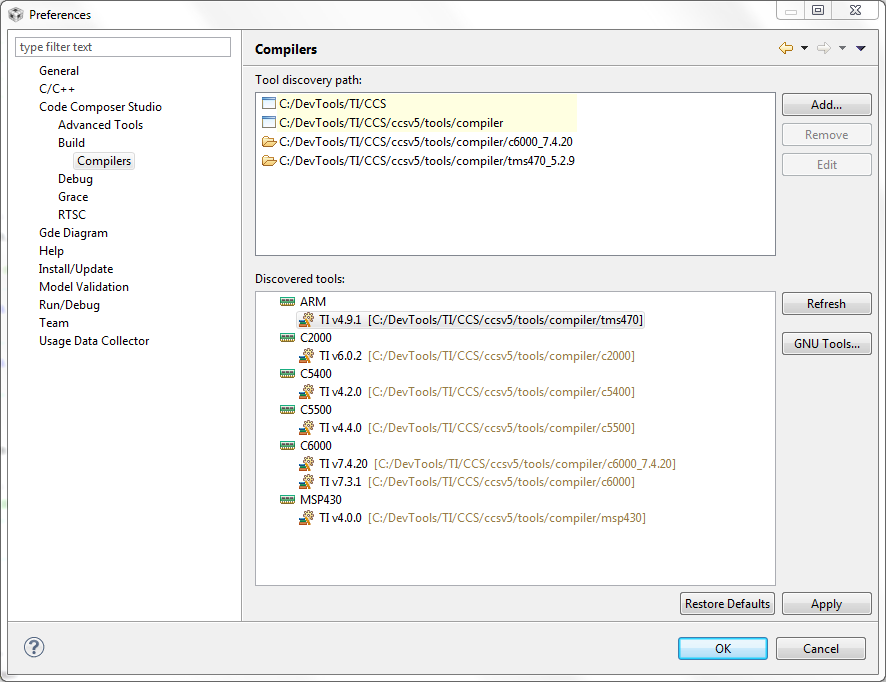Other Parts Discussed in Thread: OMAPL138, OMAP-L138
Tool/software: TI C/C++ Compiler
Hello,
I have some structs in my project for which I need to use the "packed attribute" of TI ARM compiler.
Until now I did not find any solution or setting that works.
Here is my environment:
Processor: OMAPL138E
Code Composer Studio Version: 5.1.1.00028
ARM Compiler Version: TI V4.9.1 (configured for variant "Genreic ARM9 device")
In this forum I already found some posts like this
https://e2e.ti.com/support/tools/ccs/f/81/p/38211/196004#196004
so I enabled "--unaligned_access=on", but there is still a compiler warning:
#1176-D the "packed" attribute is ignored in a typedef.
So my questions are:
- Does the toolchain (mentioned above) support the "packed attribute" for my Processor type (OMAPL138)?
- If yes, which additional compiler settings could be relevant for this?
- If not, is there a TI ARM Compiler version which does support this?
Thanks in advance for your support!
Best regards,
Markus
Here is an example ("packed" did not work - that means this struct is compiled with a 32Bit alignment):
typedef __attribute__ ((__packed__)) struct EPL_IRES_FRAME_Ttag
{
uint8_t bMtyp;
uint8_t bDest;
uint8_t bSrc;
uint8_t bSvid;
uint16_t usFlags;
uint8_t bNmtStatus;
uint8_t bReserved;
uint8_t bEplProfileVersion;
uint8_t bReserved2;
uint32_t ulFeatureFlags;
uint16_t usMTU;
uint16_t usPollInSize;
uint16_t usPollOutSize;
uint32_t ulResponseTime;
uint16_t usReserved3;
uint32_t ulDeviceType;
uint32_t ulVendorId;
uint32_t ulProductCode;
uint32_t ulRevisionNumber;
uint32_t ulSerialNumber;
uint32_t aulVendorExtension[2];
uint32_t ulVerifyConfigDate;
uint32_t ulVerifyConfigTime;
uint32_t ulApplicationSwDate;
uint32_t ulApplicationSwTime;
uint32_t ulIpAddress;
uint32_t ulSubnetMask;
uint32_t ulDefaultGateway;
uint8_t szHostName[32];
uint8_t abVendorExtension2[48];
} EPL_IRES_FRAME_T;



